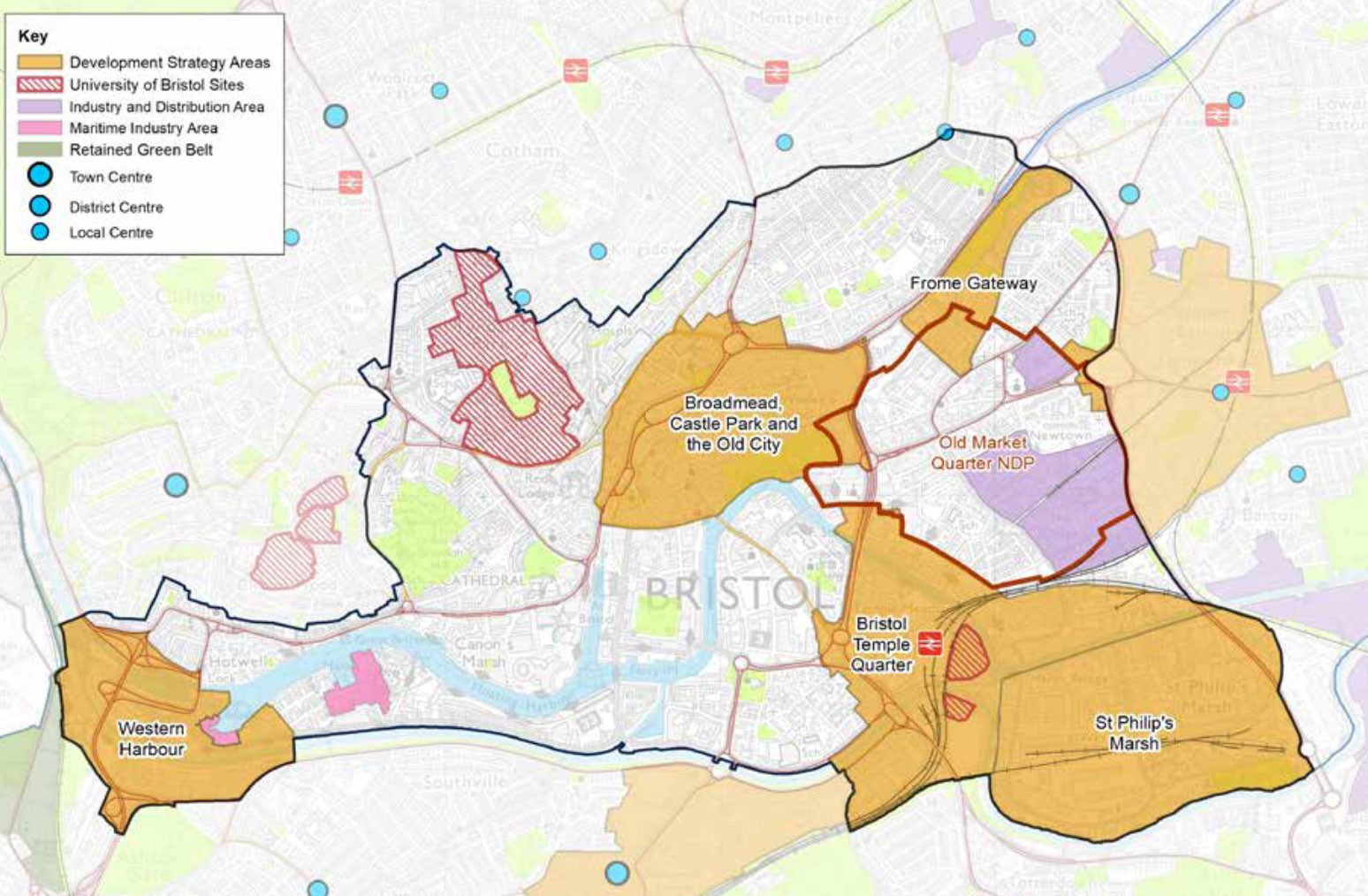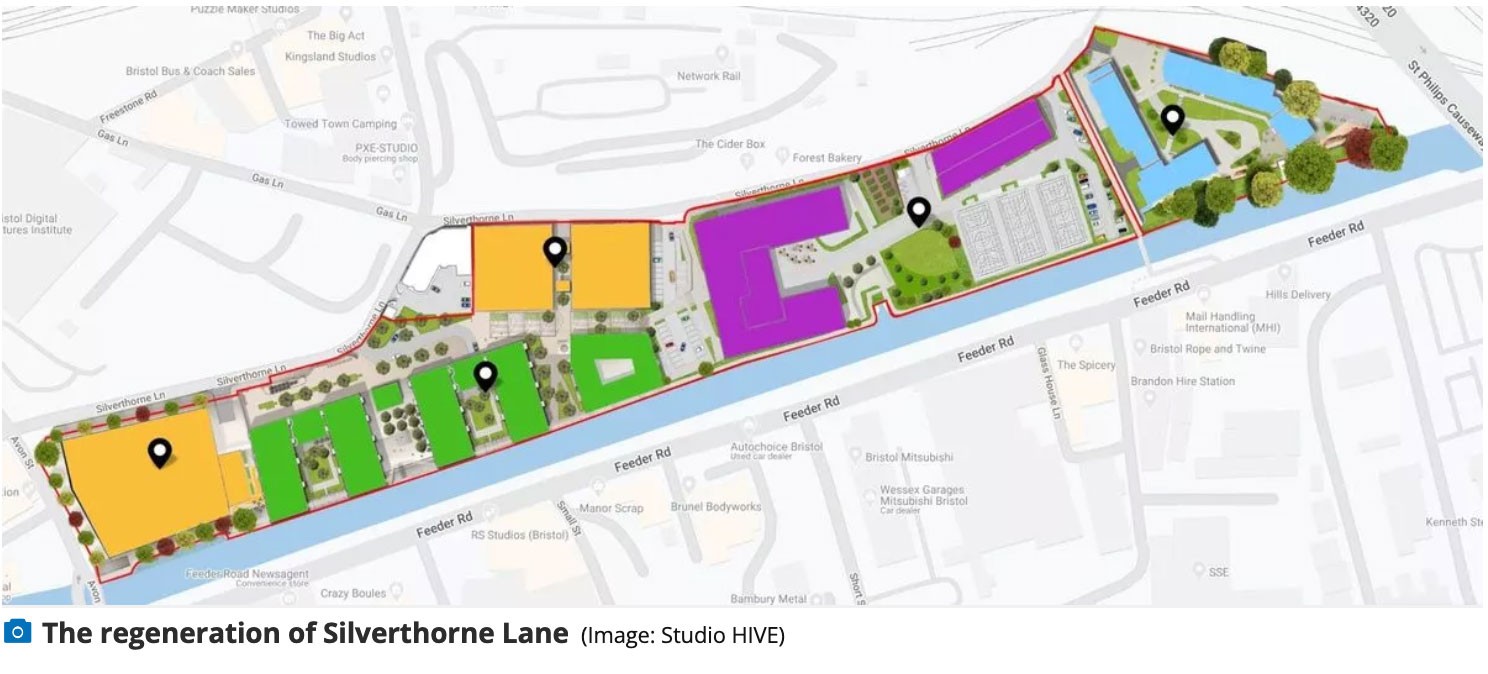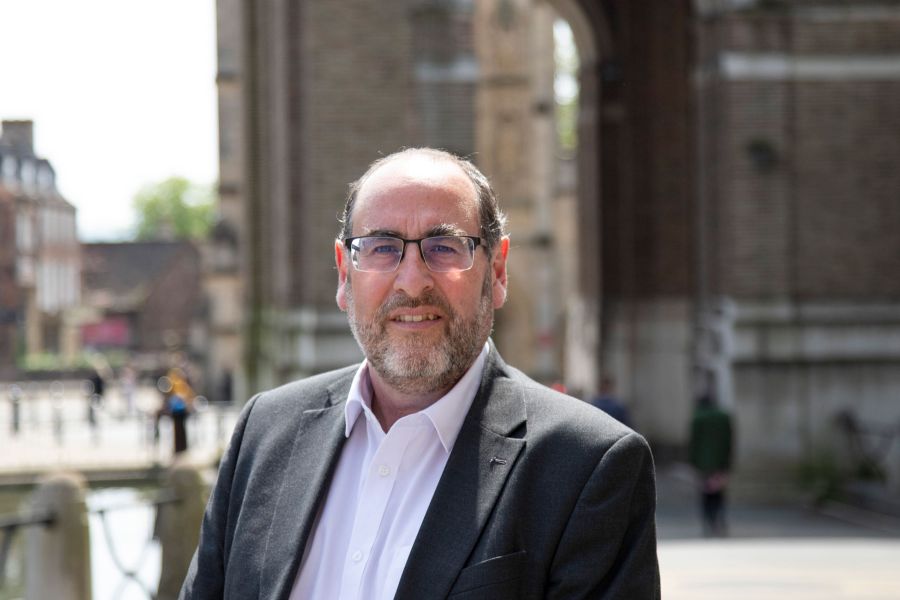Planning Bristol’s Future
Chief Planning Officer, Simone Wilding on the city’s challenges and priorities.
Ask anyone involved in the property sector in Bristol what one single thing would help unleash more much-needed development in the city and it would be “a better-resourced planning department”.
Simone Wilding has just taken over the top job in planning. What’s her take on the situation? What value does she see in the Council’s relationship with the BPAA? And what are her priorities for the year ahead?
You’re new to the job, but not to Bristol. How will that help you?
That’s right. I took over at the end of May 2023, but I’ve worked in Bristol for over 20 years – most recently at The Planning Inspectorate. My role there was national, but I am starting this job with a good understanding of the city’s dynamic.
Planning resource is the hot topic for agents and investors in the city because of the length of time it’s taking to get applications through the system. What steps are being taken to improve the situation?
I do understand the frustrations of the property sector and I would say we are gradually making progress. But it hasn't been easy – not least because there is a national shortage of skilled planners.
The block on recruitment was lifted in April 2023, and when I began working here I introduced a recruitment drive. However, that only managed to bring in nine graduates and none of the experienced people we also wanted. Since then we have lost people along the way – there is a very competitive market for planners in the UK at present. The cost of living here does not help, either, if you are not on a big salary.
That meant we had to bring in agency planners: they still have to be brought up to speed. They obviously cost more money too – and they too are in short supply. I’m currently trialling new ways of recruiting.
Unallocated cases peaked in August 2023 and the number of cases in hand peaked in October. Since then I hope that agents and their clients have seen an improvement – and that this will continue to move forwards further.
How are you prioritising the cases?
We are prioritising major schemes with a high public interest or social benefit. It won’t have gone unnoticed that we dealt with the Memorial Stadium very quickly.
A big question for me is how much should we be prioritising new applications over those in the backlog – because that will impact our performance stats. The Secretary of State has made it plain to us that LPAs with backlogs run the risk of government Special Measures – including removing local decision-making powers.
It also makes sense to do things as they come in rather than sequentially as we can deal with them more quickly. It avoids time being lost on managing frustrated customers and therefore helps everyone. Where schemes are straightforward and have not received any objections, progress may be faster as these can also be handled by more junior officers. At the same time we are conscious that those applications in the backlog have been waiting for a long time and therefore need to make sure we don’t delay these substantially further.
There is fierce competition for uses in the city centre. How are you balancing out the rival demands of housing and employment?
Clearly, we can’t trade off one against the other – we need lots more of both. The local plan, which we have now published after three consultations between February 2018 and January 2023, provides direction and prioritisation. We are on track to submit that to the Planning Inspectorate by the end of March and that will be our blueprint for the city going forward.
Meeting all of the competing demands has been the most challenging part.
Rising costs and stalling house prices have made it increasingly problematic for developers to include the required levels of affordable housing in their schemes. How much sympathy have you got for their position?
A lot of sympathy. I’d also add that there’s economic sense in providing more housing that’s not just “affordable” in the technical sense, but homes which are affordable in the plain English sense for people wanting to live and work in the city and relate to how much they earn.
It makes good sense to have a proper balance for all sorts of reasons. It means we can have a truly mixed, diverse and inclusive community. And it makes sense from an economic perspective, because otherwise employers will struggle to recruit and retain talented staff.
How would you characterise your relationship with the BPAA and how much value do they bring you?
I see a lot of value in having direct dialogue with key users of our service. Not just the BPAA – I don't want to give the impression that we are cosy! But it’s useful to have frank exchanges as well as practical suggestions on how we can get through the difficult challenges and arrive at a better place. I don’t think that I have all the solutions, so where people have practical ideas, they are always welcome.
You are moving from having a city mayor to a situation where committees will have more decision-making powers. Will that make planning more problematic?
I don't have a crystal ball but I do see pros and cons. We will just have to see what we get! Whoever comes in, I’m sure, they will have Bristol’s best interests at heart. We need to work on our shared and common interests to make it work.
There is still a large unmet demand for student housing in the city. How does that impact your need to provide affordable housing?
We are considering introducing an “affordable” element to student housing. These wouldn’t look any different from the outside, but a number in each block would be more affordable for those struggling financially – we don't have that at present.
One of the concerns of office agents in the city is the lack of affordable grow-on space. What role can the Council play in meeting this need?
We are keen to support grow-on space. Not helping the situation are the upcoming EPC requirements: another macro trend pushing in the opposite direction. I suspect that PDR to residential will be a more viable option than upgrading some offices to meet the new requirements AND be affordable for smaller businesses. The University Enterprise Campus will provide some grow-on space – but there are a lot of things that the campus needs to deliver!
How much can we help? We are operating in a very difficult financial environment and the Council is working extra hard to make ends meet and deliver on all of our duties.
There has been speculation in the past about developers paying more in order to fund planning resource. Would you consider alternative ways to better
fund the system?
We’re open to ideas. We’re also keen to do PPAs where they make sense – although we’re not currently doing them for smaller schemes, as they are time consuming to set up. There may be an opportunity for a number of operators to get together in order to get more money into the system. Getting the right people is an issue, but so too is being able to pay them.
Finally, have you any other messages for the property sector?
Keep working with us and keep coming to us with pre-apps.





